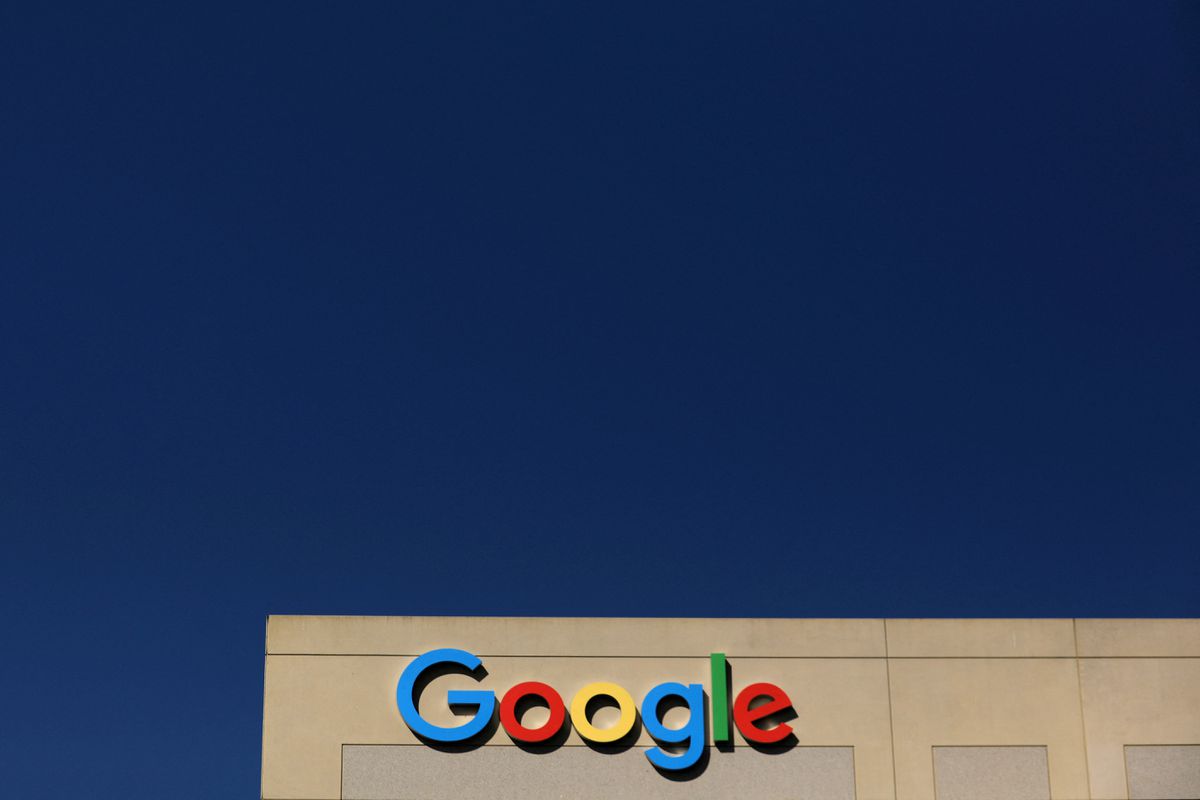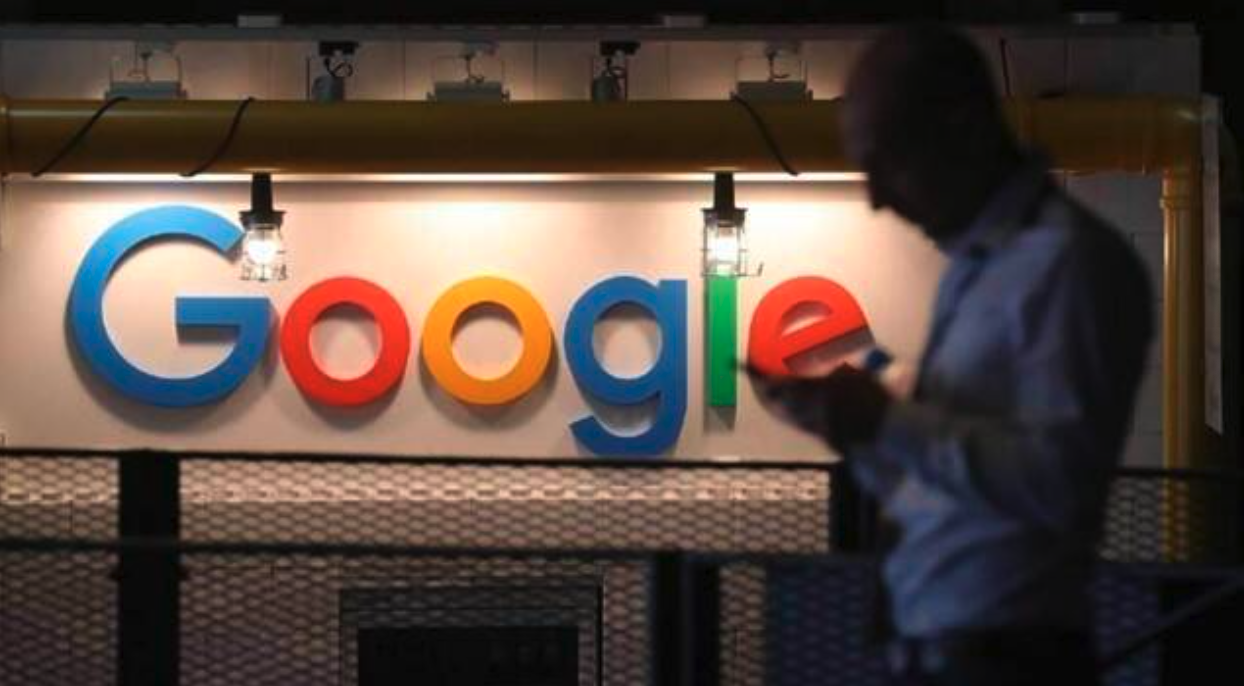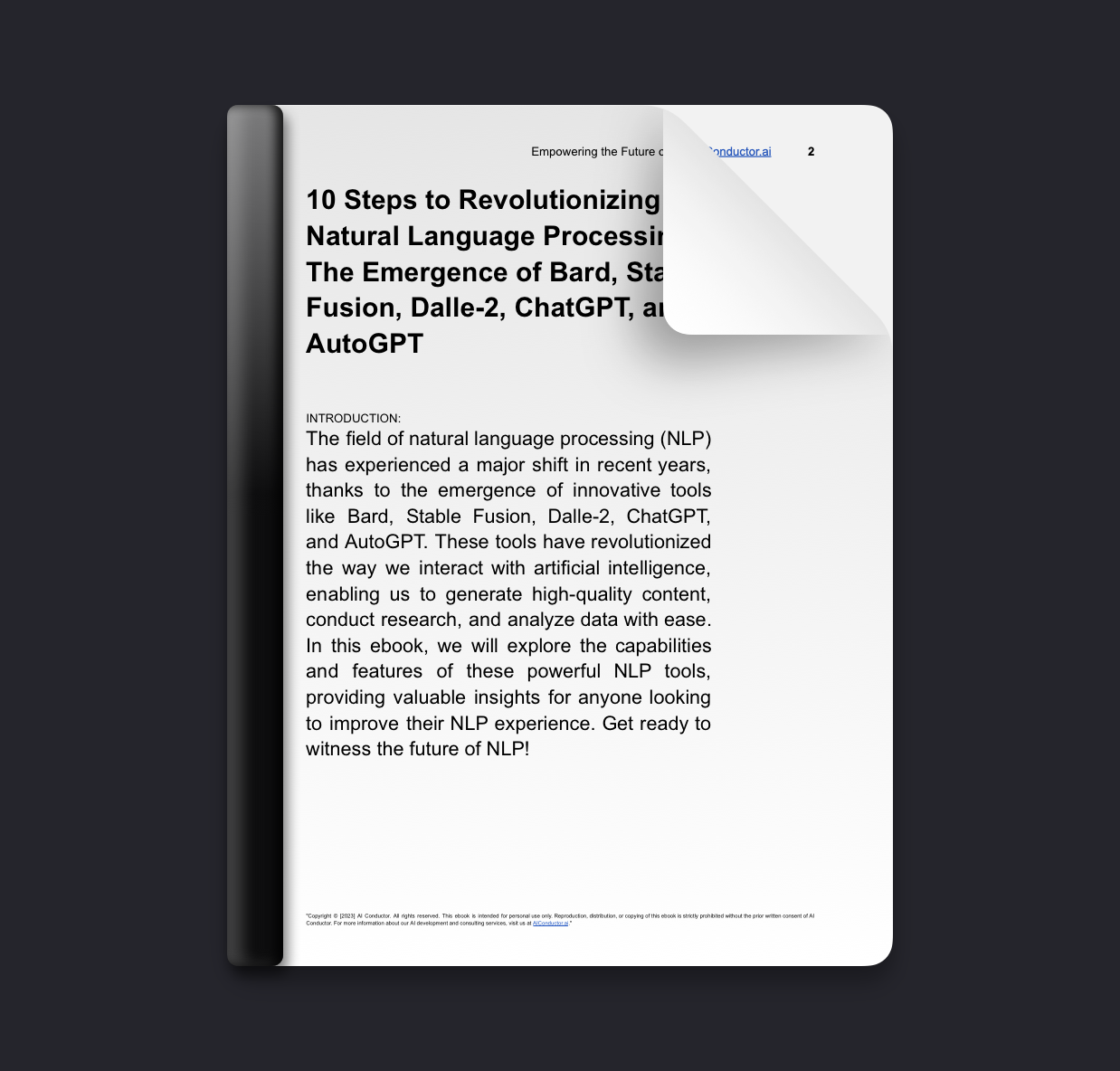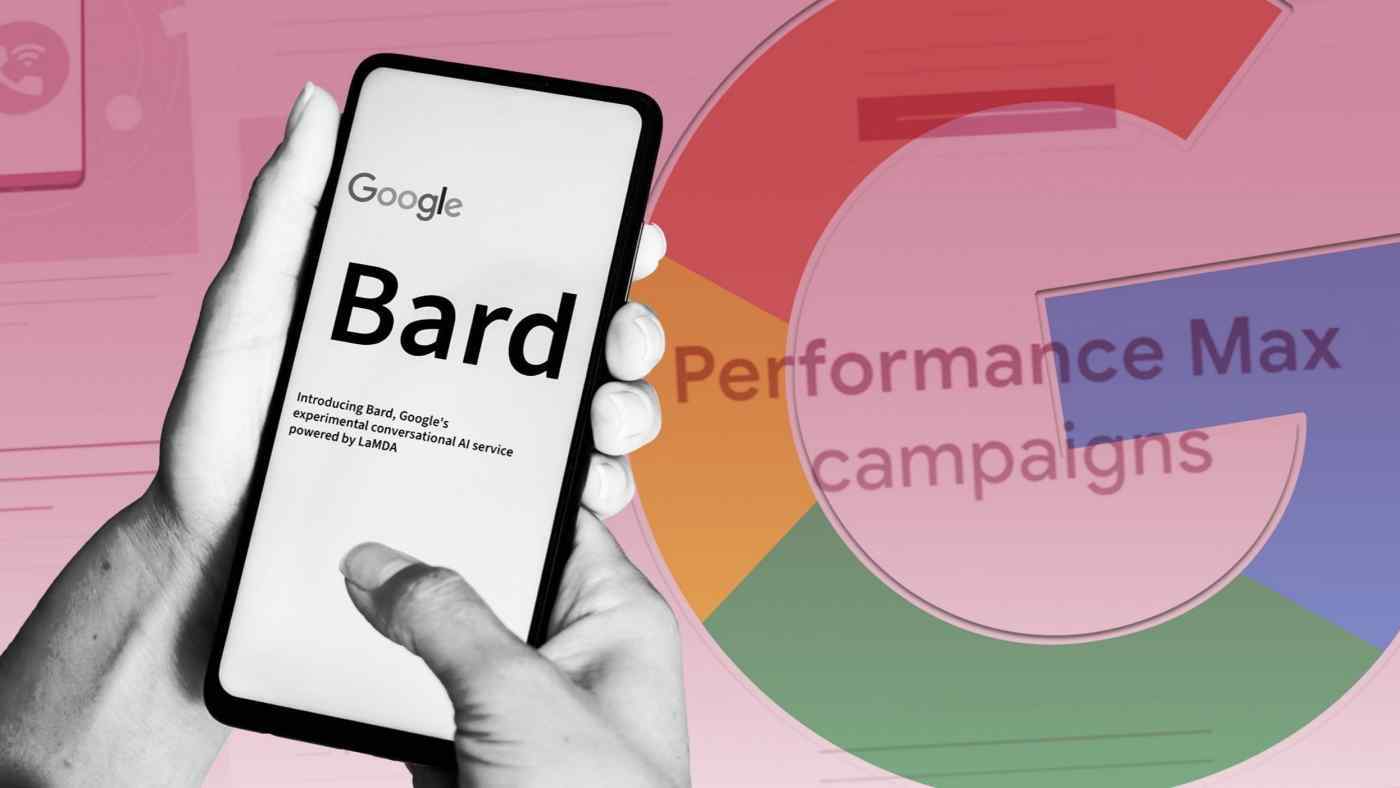We asked:
Will the use of generative AI in advertising lead to a more personalized and effective marketing approach or will it perpetuate societal biases and further invade our privacy?
Simplified Overview:
Google plans to use generative AI to create advanced advertising campaigns, according to a report by the Financial Times. The technology will be deployed in 2023 and is expected to create more sophisticated ads that can adapt to the user's preferences.

Insider Look:
Google to deploy generative AI to create sophisticated ad campaigns
It seems like artificial intelligence (AI) is the way of the future. From chatbots for customer service to self-driving cars, the possibilities are endless. And now, Google is taking AI to another level with the deployment of generative AI to create sophisticated ad campaigns.
Google has been developing the technology for some time now and plans to roll out the feature in the next few years. The aim of this technology is to offer advertisers a more efficient and effective way to create ad campaigns that are personalized and targeted to specific audiences.
Generative AI works by analyzing large data sets and looking for patterns and correlations. From there, it can create new data based on what it has learned. In the case of ad campaigns, the technology will analyze user data and create ads that are tailored to each individual's browsing history, interests, and location.
This means that advertisers will be able to deliver more relevant and engaging ads to potential customers. For example, if someone has been searching for a new car, they may be served ads for local car dealerships or car rental companies. Or, if someone has been browsing fashion websites, they may be served ads for clothing and accessories that match their personal style.
The use of generative AI will also save advertisers time and money. Instead of manually creating ads, they can simply input their goals and preferences into the system and let the technology do the rest. This will allow them to focus on other aspects of their campaigns, such as measuring their success and optimizing their strategy.
Of course, there are concerns over the use of AI in advertising. Some worry that it will lead to an increase in intrusive and targeted advertising. Others are concerned about privacy violations and the potential for data breaches.
Google has assured users that it will be transparent about how it uses the technology and will give users the option to opt out of personalized ads. However, it is important for users to be aware of their privacy settings and monitor how their data is being used by companies.
Overall, the deployment of generative AI to create sophisticated ad campaigns has the potential to revolutionize the advertising industry. It will offer advertisers a more efficient and effective way to reach their target audience, while also providing users with more personalized and relevant ads. As long as privacy concerns are addressed and transparency is maintained, it could be a win-win for everyone involved.
It seems like artificial intelligence (AI) is the way of the future. From chatbots for customer service to self-driving cars, the possibilities are endless. And now, Google is taking AI to another level with the deployment of generative AI to create sophisticated ad campaigns.
Google has been developing the technology for some time now and plans to roll out the feature in the next few years. The aim of this technology is to offer advertisers a more efficient and effective way to create ad campaigns that are personalized and targeted to specific audiences.
Generative AI works by analyzing large data sets and looking for patterns and correlations. From there, it can create new data based on what it has learned. In the case of ad campaigns, the technology will analyze user data and create ads that are tailored to each individual's browsing history, interests, and location.
This means that advertisers will be able to deliver more relevant and engaging ads to potential customers. For example, if someone has been searching for a new car, they may be served ads for local car dealerships or car rental companies. Or, if someone has been browsing fashion websites, they may be served ads for clothing and accessories that match their personal style.
The use of generative AI will also save advertisers time and money. Instead of manually creating ads, they can simply input their goals and preferences into the system and let the technology do the rest. This will allow them to focus on other aspects of their campaigns, such as measuring their success and optimizing their strategy.
Of course, there are concerns over the use of AI in advertising. Some worry that it will lead to an increase in intrusive and targeted advertising. Others are concerned about privacy violations and the potential for data breaches.
Google has assured users that it will be transparent about how it uses the technology and will give users the option to opt out of personalized ads. However, it is important for users to be aware of their privacy settings and monitor how their data is being used by companies.
Overall, the deployment of generative AI to create sophisticated ad campaigns has the potential to revolutionize the advertising industry. It will offer advertisers a more efficient and effective way to reach their target audience, while also providing users with more personalized and relevant ads. As long as privacy concerns are addressed and transparency is maintained, it could be a win-win for everyone involved.

What Is Generative AI?
Generative AI is a branch of artificial intelligence that involves using machine learning and other advanced algorithms to create new content that is novel and unique. This technology has the potential to revolutionize the way companies create ads and other marketing materials.
Google is one of the first companies to embrace generative AI for creating ads. This technology can help them create ads that are more targeted, personalized, and engaging.
Why Use Generative AI for Creating Ads?
Traditionally, creating ads has been a time-consuming and labor-intensive process. It requires a team of designers, copywriters, and marketers to come up with a concept and then produce the final version.
Generative AI can streamline this process by automating many of the creative tasks involved in ad creation. It can analyze data from past campaigns and use that information to generate new ad concepts that are likely to be effective.
This technology can also be used to create personalized ads that are tailored to individual users. For example, a utility company could use generative AI to create ads that are personalized based on a customer's usage patterns and preferences.
What Are the Benefits of Generative AI for Ad Creation?
There are several benefits to using generative AI for ad creation. One of the biggest advantages is that it can help companies create more effective ads in less time. This technology can also be used to create ads that are more targeted and personalized, which can increase their effectiveness even further.
Another benefit of generative AI is that it can help companies save money on ad creation. By automating many of the creative tasks involved in ad creation, companies can reduce their reliance on expensive designers, copywriters, and marketers.
In conclusion, generative AI is a powerful technology that has the potential to revolutionize the way companies create ads and other marketing materials. Google's decision to embrace this technology is a sign of the growing importance of AI in the tech industry. It will be interesting to see how this technology evolves in the coming years and how it will continue to shape the future
Generative AI is a branch of artificial intelligence that involves using machine learning and other advanced algorithms to create new content that is novel and unique. This technology has the potential to revolutionize the way companies create ads and other marketing materials.
Google is one of the first companies to embrace generative AI for creating ads. This technology can help them create ads that are more targeted, personalized, and engaging.
Why Use Generative AI for Creating Ads?
Traditionally, creating ads has been a time-consuming and labor-intensive process. It requires a team of designers, copywriters, and marketers to come up with a concept and then produce the final version.
Generative AI can streamline this process by automating many of the creative tasks involved in ad creation. It can analyze data from past campaigns and use that information to generate new ad concepts that are likely to be effective.
This technology can also be used to create personalized ads that are tailored to individual users. For example, a utility company could use generative AI to create ads that are personalized based on a customer's usage patterns and preferences.
What Are the Benefits of Generative AI for Ad Creation?
There are several benefits to using generative AI for ad creation. One of the biggest advantages is that it can help companies create more effective ads in less time. This technology can also be used to create ads that are more targeted and personalized, which can increase their effectiveness even further.
Another benefit of generative AI is that it can help companies save money on ad creation. By automating many of the creative tasks involved in ad creation, companies can reduce their reliance on expensive designers, copywriters, and marketers.
In conclusion, generative AI is a powerful technology that has the potential to revolutionize the way companies create ads and other marketing materials. Google's decision to embrace this technology is a sign of the growing importance of AI in the tech industry. It will be interesting to see how this technology evolves in the coming years and how it will continue to shape the future
Essential Insights:
Three-Word Highlights
AI, Advertising, Innovation
Winners & Losers:
Pros:
1. More efficient ad campaigns: With the help of generative AI, Google can create more sophisticated ad campaigns that are tailored to specific audiences. This can result in more efficient and effective advertising, leading to better ROI for businesses.
2. Cost-effective: By using AI to create ad campaigns, businesses can save money on hiring expensive marketing agencies or consultants. This can be particularly beneficial for small businesses that have limited marketing budgets.
3. Improved targeting: Generative AI can help businesses target their ads more accurately, resulting in higher conversion rates and better engagement with potential customers.
Cons:
1. Potential job loss: As AI becomes more prevalent in advertising, there is a risk that human jobs will be replaced by machines. This could lead to unemployment and economic instability.
2. Lack of creativity: Although AI can create sophisticated ad campaigns, there is a risk that they may lack the creativity and originality that human marketers can bring to the table. This could result in less engaging and memorable ads.
3. Privacy concerns: With the use of AI in advertising, there is a potential risk of privacy violations. AI algorithms may collect and analyze personal data without the user's consent, which could lead to ethical concerns and legal issues.
Bottom Line:
In 2023, Google plans to leverage generative AI to create sophisticated ad campaigns, streamlining the advertising process and potentially increasing revenue for businesses.
Ref.
Join The Conversation!





